- Home
- P. G. Wodehouse
Pigs Have Wings: Page 7
Pigs Have Wings: Read online
Page 7
‘How did he take that?’
‘He laughed at the wit. The satire didn’t go so well.’
‘He is stout, this Parsloe?’
‘He certainly gets his pennyworth out of a weighing machine.’
Jerry was not unnaturally anxious to condense preliminaries to a minimum and come to the real business of the evening, but a host must be civil. He cannot plunge into business over the smoked salmon. He was, moreover, extremely curious to learn the inside story of the rift within the lute at which his guest had hinted – if hinted is the word – when speaking earlier in the day of Orlo, Lord Vosper. Jerry, who had known that handsomest ornament of the Peerage from boyhood days and was very fond of him, had been saddened by her tale of sundered hearts.
‘A bit of a change from the old Wasp,’ he ventured.
‘What old wasp?’
‘Boyish nickname for Vosper. I was at school with him.’
‘You were, were you? Borstal, I presume? Did you kick him?’
‘Of course I didn’t kick him. I loved him like a brother.’
‘The chance of a lifetime thrown away,’ said Miss Salt with bitterness. ‘If Orlo Vosper in his formative years had been thoroughly kicked twice a day, Sundays included, he might not have grown up the overbearing louse he has become.’
‘Would you call him an overbearing louse?’
‘I did. To his face.’
‘When was this?’
‘On the tennis court at Eastbourne, and again when entering the club house. I’d have done it in the dressing-room, too, only he wasn’t there. They separate the sexes. Of all the overbearing lice that ever overbore, I told him, you are the undisputed champion, and I gave him back his ring.’
‘Oh, you were engaged?’
‘Don’t rub it in. We all make mistakes.’
‘I didn’t see anything about it in the papers.’
‘We were going to announce it just before Wimbledon.’
‘What did he do to incur your displeasure?’
‘I’ll tell you. We were playing in the mixed doubles, and I admit that I may have been slightly off my game, but that was no reason why, after we had dropped the first set, he should have started barging into my half of the court, taking my shots for me as if I were some elderly aunt with arthritis in both legs who had learned tennis in the previous week at a correspondence school. “Mine!” he kept yelling. “Mine, mine!”, and where was Gloria? Crouching in a corner, looking at him with wide, admiring eyes and saying “My hero!”? No, sir. I told him that if he didn’t stop his damned poaching, I would brain him, if he had a brain. That held him for a while. After that, he kept himself to himself, as it were. But every time I missed a shot, and a girl with an emotional nature couldn’t be expected not to miss a few after an ordeal like that, he raised his eyebrows in a superior kind of way and gave a sort of nasty dry snigger and kept saying “Too bad, too bad.” And when it was over and we had lost – two six, three six – he said what a pity it all was and if only I had left it to him … Well, that was when we parted brass rags. Shortly afterwards I got engaged to Greg Parsloe.’
Jerry clicked his tongue, and when his guest inquired with some asperity why he was making that idiotic noise, and did he think he was riding in the Grand National and encouraging his horse to jump Becher’s Brook, explained that her story had distressed him. As, indeed, it had. Nobody likes to hear of these rifts between old friends. He had been devoted to Lord Vosper since the days when they had thrown inked darts at one another, while for Gloria Salt he felt that gentle affection which men feel for women who could have married them and didn’t.
‘Has the Wasp heard about it?’
‘I suppose so. It was in The Times.’
‘It must have given him a jolt.’
‘One hopes so.’
‘Where is he now?’
‘Goodness knows. I don’t. And for heaven’s sake let’s stop talking about him. I should have thought you would have shown some interest in what I said to you over the phone this afternoon. I pictured you running up to me the moment I came in, all full of eager questions. And you haven’t so much as mentioned it.’
Jerry was dismayed to think that she should have got so wrong an impression from his gentlemanly reserve.
‘Good Lord, of course I’m interested. But I thought you would get around to that when you felt like it. I didn’t want you to think that was the only reason I wanted to dine with you.’
‘Did you want to dine with me?’
‘Of course I did.’
‘You didn’t sound too pleased.’
‘Well, you see, actually I had another date for tonight, and I was feeling it might be awkward breaking it.’
‘A girl?’
It was a loose way of describing the divinest of her species, but Jerry let it pass.
‘Yes, a girl.’
Gloria Salt’s eyes grew soft and sympathetic. She leaned across the table and patted his cheek.
‘I’m terribly sorry, Jerry. I didn’t know. Is this love? Yes, I can see it is from the way your eyes are goggling. Well, well. When did this happen?’
‘Not so long ago. I dashed over to New York the other day, and she was on the boat coming back.’
‘When are you going to get married?’
‘Never, unless I can raise that two thousand pounds.’
‘It’s like that, is it? Don’t you make anything with your writing?’
‘Not half enough.’
‘I see. Well, as I say, I’m sorry I had to come butting in, but this was my last chance of getting hold of you. I’m motoring down to Shropshire tomorrow, to stay at a place called Blandings Castle.’
Jerry started.
‘Blandings Castle?’
‘You know it?’
Jerry hesitated. Should he tell her all about Penny? On the whole, he thought, no. The fewer people who knew, the better.
‘I’ve heard of it,’ he said. ‘Nice place, I believe.’
‘So they all tell me. It’s only a mile or two from where Gregory hangs out, so we’ll be able to see something of each other. I imagine that’s why Lady Constance invited me. Well, keep the words “Blandings Castle” steadily in your mind, because they are the heart of the matter. I will now approach the heart of the matter.’
A waiter brought roast beef, underdone, and she took a thin slice. Jerry took two slices, with potatoes, and Gloria in her austere way advised him to be very careful how he tucked into those things, because she was convinced that it was a lifelong passion for potatoes that had made Sir Gregory Parsloe the man he was … or, rather, she added, for she was a girl who liked exactness, the two men he was.
‘Where were we?’ she asked, as the waiter withdrew.
‘You were about to approach the heart of the matter.’
‘That’s right. So I was. Well, here it comes. Listen attentively, for what I have to say will interest you strangely.’
She ate a Brussels sprout. It is the virtue of Brussels sprouts that you can wolf them freely without running any risk of becoming like Sir Gregory Parsloe, Bart, of Matchingham Hall, Much Matchingham.
‘I don’t know about the flora of Blandings Castle,’ she said, ‘though no doubt they are varied and beautiful, but its fauna consist of – amongst others – Clarence, ninth Earl of Emsworth, and his sister, Lady Constance. What the relations are between the noble lord and my betrothed I cannot say, but Lady Constance and he appear to be on matey terms, so much so that when the other day she wanted to get a new secretary for Lord Emsworth, she asked if he could do anything to help. “Charmed, dear lady,” said Greg, and got me on the phone and told me to attend to it, if it was not giving me too much trouble. “No trouble at all, my king,” I said. “As a matter of fact, I know a man.” You’re the man.’
Jerry gasped. The roast beef swam before his eyes.
‘You don’t mean –?’
‘The job’s yours, if you care to take it, and I strongly advise you to take it, because there is more in th
is than meets the eye and the plot is shortly about to thicken. But I suppose you’re going to come over all haughty and say that the Vails don’t take jobs as secretaries.’
Jerry laughed. The thought of being too proud to allow himself to be employed in a house which contained Penny, a house probably stiff with rose gardens and other secluded nooks where he and Penny could meet and talk of this and that, was an amusing one. Had it been required of him, he would have accepted office as the boy who cleaned the knives and boots.
‘I’ll be there. You couldn’t have suggested anything that would have suited me better.’
‘That’s all right, then. And now for the thickening of the plot. About a year ago I ran into a lad I used to go dancing with in the days of Edward the Confessor, a youth named Hugo Carmody, and he gave me lunch and told me all about Blandings Castle. It seems that he was Lord Emsworth’s secretary at one time, and he had me in stitches with his diverting stories about the old boy. Are you listening?’
‘You bet I’m listening.’
‘I had completely forgotten Hugo and his saga till Greg rang me up, and then the word “secretary”, taken in conjunction with the words “Blandings Castle”, brought it all back to me, and I saw that this was where I could do my day’s good deed. The gist of what Hugo had told me was that the old bird – I allude to the ninth Earl – is practically dotty on the subject of pigs. He has a prize pig called Empress of Blandings to which he is devoted. In fact, you might say he thinks of nothing else. Hugo’s tenure of his job was very rocky off and on, but he told me he could always stabilize it by talking pig to Lord Emsworth. There were times, he said, when he was at the top of his form as a pig talker, when he got the impression that Lord Emsworth would have given him all he had, even unto half his kingdom. And when Greg told me about this secretary thing and I thought of you, it was because it suddenly struck me that it was quite possible that if you went to Blandings and showed yourself sufficiently pig-conscious, old Emsworth might be induced to advance you that two thousand you require. Naturally I don’t say it’s a snip. Lots of elderly men, however fond they may have become of an eager youngster, wince and shrink back when the latter shows a disposition to climb on their laps and help himself out of their pockets. But in your case it wouldn’t be a straight touch. All you would be asking for would be a loan, and not too risky a loan considering what pots of money these cure places make. You would put it up to him as a business proposition. “Lord Emsworth,” you would say, “do you want to make a bit? Because, if so, I can swing it for you,” and then you would go into your sales talk and offer him a large interest on his money. An old bird like that probably has all his cash salted away in Government bonds at three per cent, and you would sneer at Government bonds, and ask if he wouldn’t prefer a safe ten. I think he would drop. Mind you, I’m not saying that you could walk into Blandings Castle tomorrow and expect to get a cheque for two thousand of the best before bedtime, but after the lapse of some weeks, after you had softened him up with your encyclopaedic knowledge of pigs, I don’t see why you shouldn’t have a sporting chance. Think it over.’
Jerry was doing so, and now he came up with an objection.
‘But I haven’t an encyclopaedic knowledge of pigs.’
‘There are a million books you can get it from. Good heavens! Go to the British Museum and ask for everything they have on the subject. If I were in your place, I’d guarantee to become an authority in a couple of days. You don’t suppose Hugo Carmody knew anything about pigs do you? He had never met a pig except informally over the dish of breakfast bacon. Whenever the sack seemed to him to be looming, when he could hear the beating of its wings, so to speak, he used to sneak down at night to Lord Emsworth’s library and bone up on the subject till breakfast time. By then, he tells me, though a little apt to fall asleep where he sat, he did know about pigs. What Hugo could do, you can do. Or are you a spineless worm incapable of honest effort?’
So might the Cleopatra she so closely resembled in appearance have addressed one of her soldiers who seemed in need of a pep talk before the battle of Actium. And just as this soldier would have sprung to his feet with flashing eyes, so did Jerry Vail leap with flashing eyes from his chair.
‘Want to dance?’ said Gloria.
Jerry quivered.
‘What I really want is to fold you in my arms and cover your upturned face with burning kisses.’
‘You can’t do that there here. And you seem to be forgetting that we’re both engaged to somebody else.’
‘You don’t get the idea. These would be kisses of gratitude, the sort of kisses a brother would bestow on a sister who deserved well of him. I simply don’t know what to say, Gloria, old thing. You spoke of doing your day’s good deed. What you have done this night is sufficient to carry you over till a couple of years from now, even if you do no good deeds in the meantime. Well, I suppose all I can say is “Thank you.”’
She patted his cheek.
‘Don’t mention it,’ she said. ‘Come on, let’s dance.’
3
In her bedroom in her neat little house in the suburb of Valley Fields, Maudie Stubbs, née Beach, was enjoying a last cigarette before turning in for the night.
All her arrangements for tomorrow’s exodus were completed – her packing done, her hair waved, her cat Freddie lodged with a friend down the road, and now she was musing dreamily on something her Uncle Sebastian had said over the telephone yesterday.
The story he had told had of necessity been brief and sketchy, and she had still to learn in detail exactly what was expected of her on arrival at this Blandings Castle of which she had heard so much, but in the course of his remarks Uncle Sebastian had mentioned as the menace to the well-being of himself and associates a Sir Gregory Parsloe.
She wondered if this could possibly be the Tubby Parsloe she had known so well in the days when she had been Maudie Montrose.
CHAPTER 4
WITH THE POSSIBLE exception of Mrs Emily Post, a few of the haughtier Duchesses and the late Cornelia mother of the Gracchi, the British barmaid, trained from earliest years to behave with queenly dignity under the most testing conditions, stands alone in the matter of poise.
It was no timid and fluttering Maudie Stubbs who stepped off the train next day at Market Blandings station. Where another representative of what is sometimes termed the burjoisy might have quailed at the thought of being plunged into so posh – or plushy – a nest of the aristocracy as Blandings Castle, she faced the prospect with equanimity, remaining as calm and composed as she would have been if entering a den of lions like the prophet Daniel or a burning fiery furnace like Shadrach, Meshack and Abednego. In her professional capacity, she had seen far too many members of the Peerage thrown out of the bar over which she presided for blue blood to mean anything to her.
Gally, all eagerness to renew a friendship interrupted by time and change, had walked in to meet the train, and there was an affecting reunion on the station platform. After which, he had taken her off to the Emsworth Arms for a spot of refreshment. He felt she must be in need of it after her long journey, and apart from the altruistic desire to keep an old crony from fainting by the wayside, he thought it would be no bad thing to have a quick run-through before the rise of the curtain, just to make sure that she was letter perfect in her part.
When two old friends get together after long separation, the proceedings always begin with a picking up of threads. The first old friend asks the second old friend for news of Jimmy So-and-so, while the second old friend asks the first old friend what has been heard of Billy Such-and-such. Inquiries are also instituted regarding Tom This, Dick That and Harry The other, with speculations as to whatever became of old Joe What’s-his-name, the chap who always used to do an imitation of a cat fight after his third whisky and splash.
These routine preliminaries had been disposed of during the walk from the station, and now, as they sat at a rustic table in the garden behind the inn, sipping the beer for which the Em
sworth Arms is so justly renowned, they were at liberty to speak of other things. To a man as gallant as the Hon. Galahad a compliment with reference to his companion’s appearance naturally suggested itself first, and he proceeded to pay it.
‘Well, well, well,’ he said, gazing at her with undisguised admiration. ‘Do you know you positively don’t look a dashed day older, Maudie? It’s amazing.’
And indeed the years had dealt lightly with the erstwhile Maudie Montrose. A little more matronly, perhaps, than the girl with the hourglass figure who had played the Saint Bernard dog to the thirsty wayfarers at the old Criterion, she still made a distinct impression on the eye, and the landlord of the Emsworth Arms, his growing son Percy, and the half dozen Shropshire lads who were propping up the establishment’s outer wall, had stamped her with the seal of their pop-eyed approval. Her entrance had been in the nature of a social triumph.
‘It’s astounding,’ said Gaily. ‘One gasps. Put you in a bathing suit, add you to the line of contestants in any seaside beauty competition, and you would still have the judges whooping and blowing kisses and asking you if you were doing anything next Saturday night.’
It was the sort of tribute a thousand mellowed clients had paid her across the bar in the old days, and Maudie, who had simpered indulgently then, simpered indulgently now.
‘Thank you, dear,’ she said. ‘I call that very nice of you. You don’t look so bad yourself,’ she added, with that touch of surprise which always came into the voices of those who, meeting Gally after a lapse of years, found him so bright and rosy.
This man’s fitness was one of the eternal mysteries. Speaking of him, a historian of Blandings Castle had once written: ‘A thoroughly mis-spent life had left the Hon. Galahad Threepwood, contrary to the most elementary justice, in what appeared to be perfect, even exuberantly perfect physical condition. How a man who ought to have had the liver of the century could look as he did was a constant source of perplexity to his associates. It seemed incredible that anyone who had had such an extraordinarily good time all his life should, in the evening of that life, be so superbly robust.’

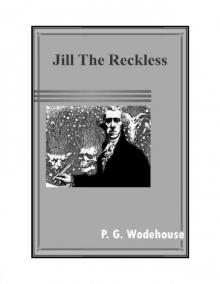 Jill the Reckless
Jill the Reckless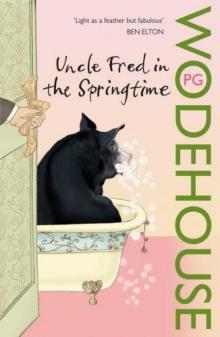 Uncle Fred in the Springtime
Uncle Fred in the Springtime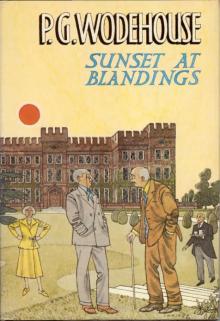 Sunset at Blandings
Sunset at Blandings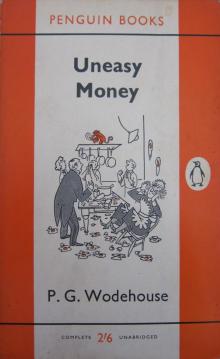 Uneasy Money
Uneasy Money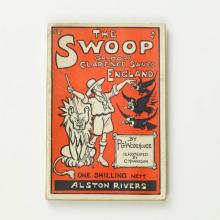 The Swoop! or, How Clarence Saved England: A Tale of the Great Invasion
The Swoop! or, How Clarence Saved England: A Tale of the Great Invasion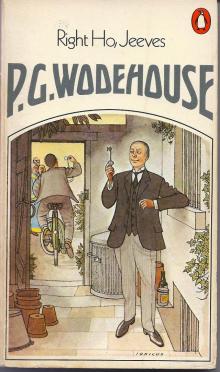 Right Ho, Jeeves
Right Ho, Jeeves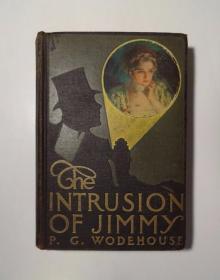 The Intrusion of Jimmy
The Intrusion of Jimmy The Jeeves Omnibus - Vol 1:
The Jeeves Omnibus - Vol 1: Aunts Aren't Gentlemen:
Aunts Aren't Gentlemen: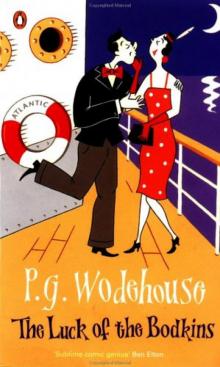 The Luck of the Bodkins
The Luck of the Bodkins The Little Nugget
The Little Nugget Money for Nothing
Money for Nothing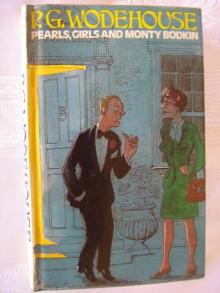 Pearls, Girls and Monty Bodkin
Pearls, Girls and Monty Bodkin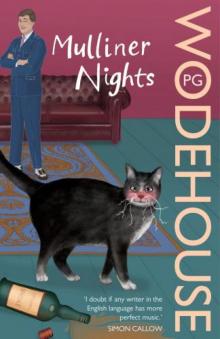 Mulliner Nights
Mulliner Nights Blandings Castle and Elsewhere
Blandings Castle and Elsewhere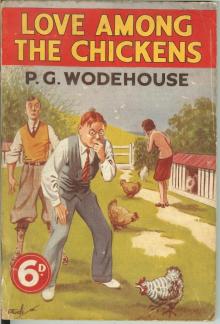 Love Among the Chickens
Love Among the Chickens Carry On, Jeeves!
Carry On, Jeeves!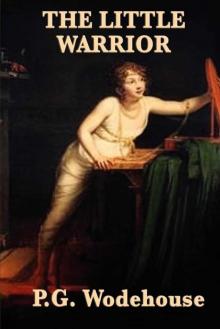 The Little Warrior
The Little Warrior Ice in the Bedroom
Ice in the Bedroom Leave It to Psmith
Leave It to Psmith Thank You, Jeeves:
Thank You, Jeeves: Money in the Bank
Money in the Bank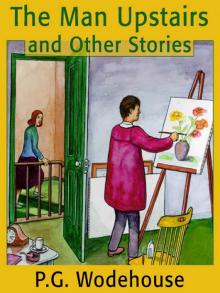 The Man Upstairs and Other Stories
The Man Upstairs and Other Stories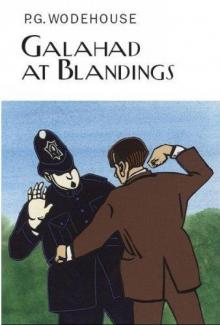 Galahad at Blandings
Galahad at Blandings The Jeeves Omnibus Vol. 5
The Jeeves Omnibus Vol. 5 Uncle Dynamite
Uncle Dynamite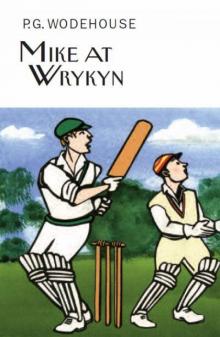 Mike at Wrykyn
Mike at Wrykyn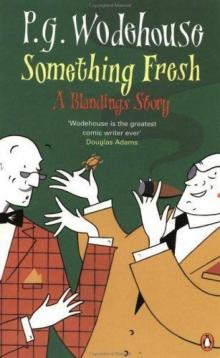 Something Fresh
Something Fresh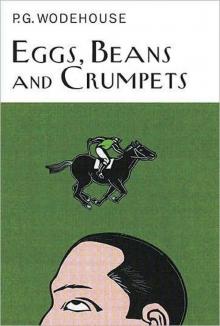 Eggs, Beans and Crumpets
Eggs, Beans and Crumpets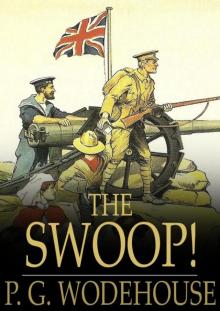 The Swoop: How Clarence Saved England (Forgotten Books)
The Swoop: How Clarence Saved England (Forgotten Books)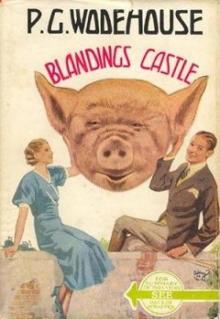 Blanding Castle Omnibus
Blanding Castle Omnibus Wodehouse at the Wicket: A Cricketing Anthology
Wodehouse at the Wicket: A Cricketing Anthology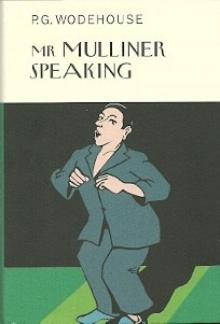 Mr. Mulliner Speaking
Mr. Mulliner Speaking Hot Water
Hot Water The Jeeves Omnibus - Vol 3: The Mating Season / Ring for Jeeves / Very Good, Jeeves
The Jeeves Omnibus - Vol 3: The Mating Season / Ring for Jeeves / Very Good, Jeeves The Mating Season
The Mating Season Meet Mr. Mulliner
Meet Mr. Mulliner The Man with Two Left Feet, and Other Stories
The Man with Two Left Feet, and Other Stories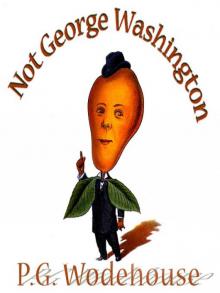 Not George Washington — an Autobiographical Novel
Not George Washington — an Autobiographical Novel Young Men in Spats
Young Men in Spats The Jeeves Omnibus Vol. 4
The Jeeves Omnibus Vol. 4 A Pelican at Blandings:
A Pelican at Blandings: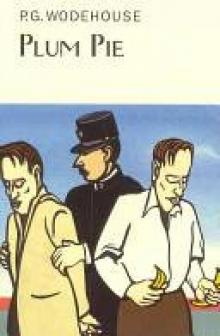 Plum Pie
Plum Pie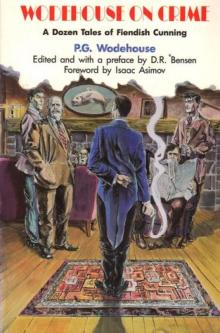 Wodehouse On Crime
Wodehouse On Crime The Jeeves Omnibus Vol. 2: Right Ho, Jeeves / Joy in the Morning / Carry On, Jeeves
The Jeeves Omnibus Vol. 2: Right Ho, Jeeves / Joy in the Morning / Carry On, Jeeves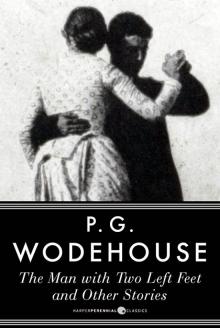 The Man With Two Left Feet
The Man With Two Left Feet Full Moon:
Full Moon: Jeeves and the Feudal Spirit:
Jeeves and the Feudal Spirit: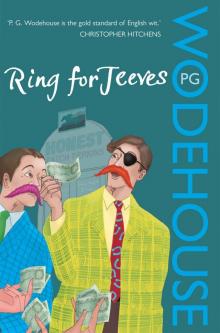 Ring For Jeeves
Ring For Jeeves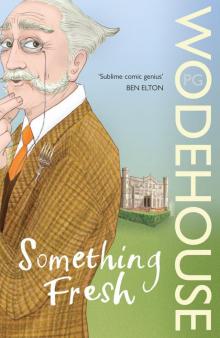 Something New
Something New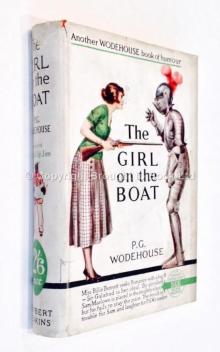 The Girl on the Boat
The Girl on the Boat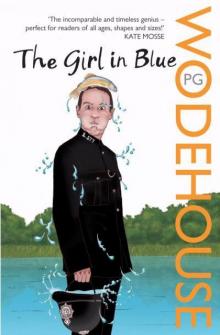 The Girl in Blue
The Girl in Blue Pigs Have Wings:
Pigs Have Wings: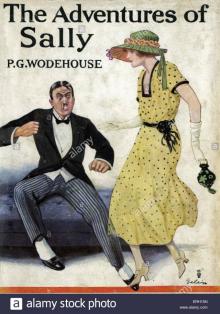 The Adventures of Sally
The Adventures of Sally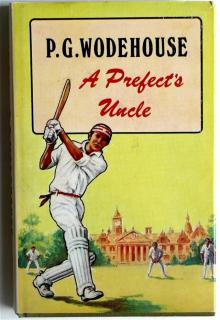 A Prefect's Uncle
A Prefect's Uncle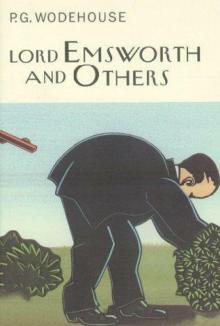 Lord Emsworth and Others
Lord Emsworth and Others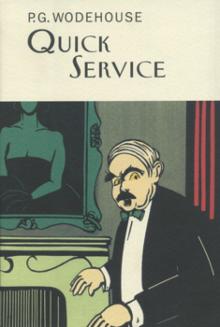 Quick Service
Quick Service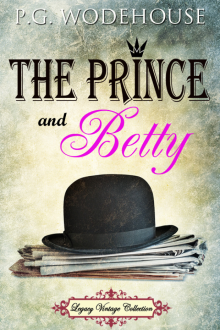 The Prince and Betty
The Prince and Betty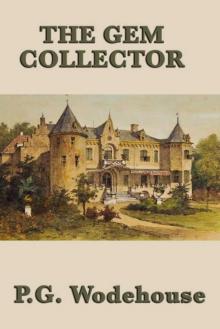 The Gem Collector
The Gem Collector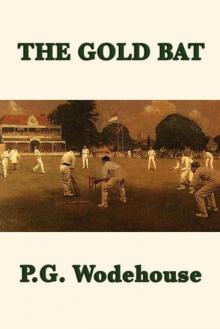 The Gold Bat
The Gold Bat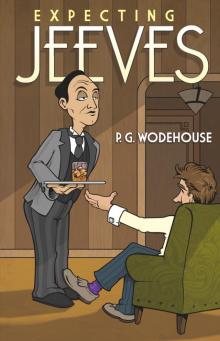 Expecting Jeeves
Expecting Jeeves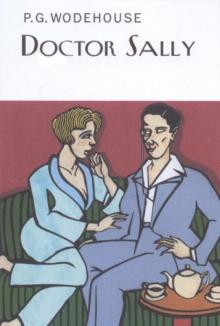 Doctor Sally
Doctor Sally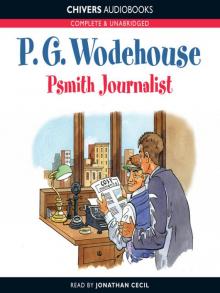 Psmith, Journalist
Psmith, Journalist The Golf Omnibus
The Golf Omnibus Heavy Weather
Heavy Weather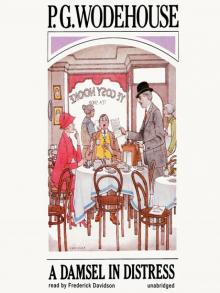 A Damsel in Distress
A Damsel in Distress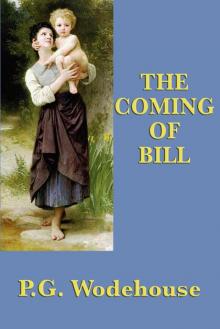 The Coming of Bill
The Coming of Bill Summer Lightning
Summer Lightning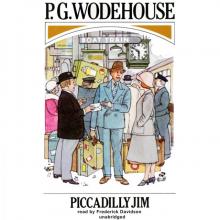 Piccadilly Jim
Piccadilly Jim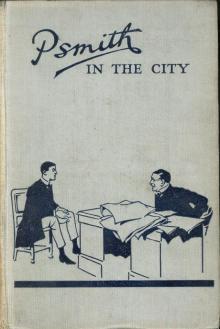 Psmith in the City
Psmith in the City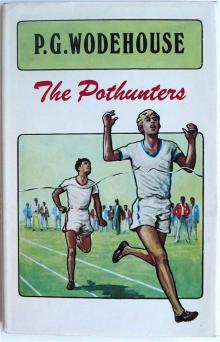 The Pothunters
The Pothunters Service With a Smile
Service With a Smile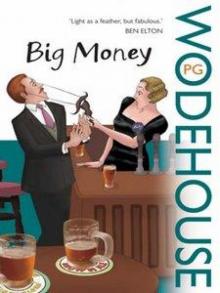 Big Money
Big Money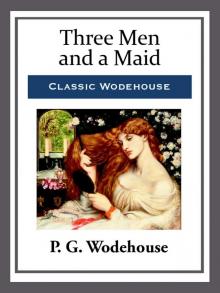 Three Men and a Maid
Three Men and a Maid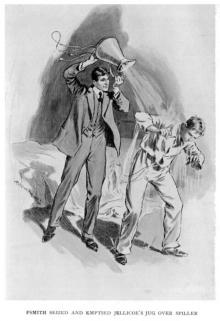 Mike and Psmith
Mike and Psmith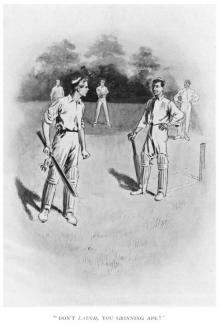 Mike
Mike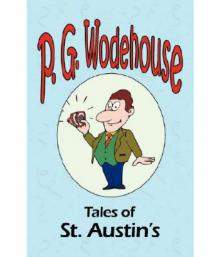 Tales of St. Austin's
Tales of St. Austin's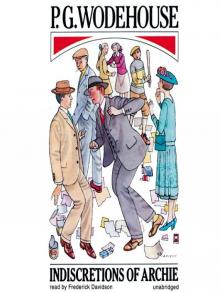 Indiscretions of Archie
Indiscretions of Archie Pigs Have Wings
Pigs Have Wings The Jeeves Omnibus - Vol 4: (Jeeves & Wooster): No.4
The Jeeves Omnibus - Vol 4: (Jeeves & Wooster): No.4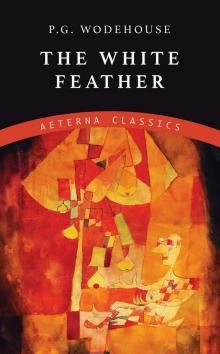 The White Feather
The White Feather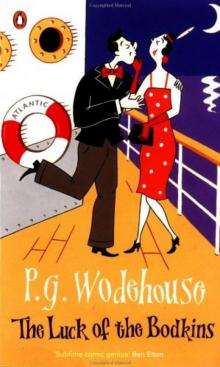 Luck of the Bodkins
Luck of the Bodkins THE SPRING SUIT
THE SPRING SUIT Full Moon
Full Moon Very Good, Jeeves
Very Good, Jeeves Thank You, Jeeves
Thank You, Jeeves Reginald's Record Knock.
Reginald's Record Knock. Wodehouse At the Wicket
Wodehouse At the Wicket LADIES AND GENTLEMEN V. PLAYERS
LADIES AND GENTLEMEN V. PLAYERS The Jeeves Omnibus - Vol 5: (Jeeves & Wooster)
The Jeeves Omnibus - Vol 5: (Jeeves & Wooster) The Jeeves Omnibus - Vol 1: (Jeeves & Wooster): No.1
The Jeeves Omnibus - Vol 1: (Jeeves & Wooster): No.1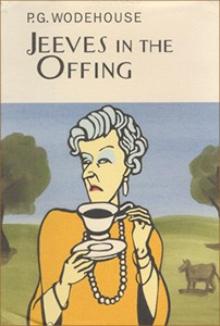 Jeeves in the offing jaw-12
Jeeves in the offing jaw-12